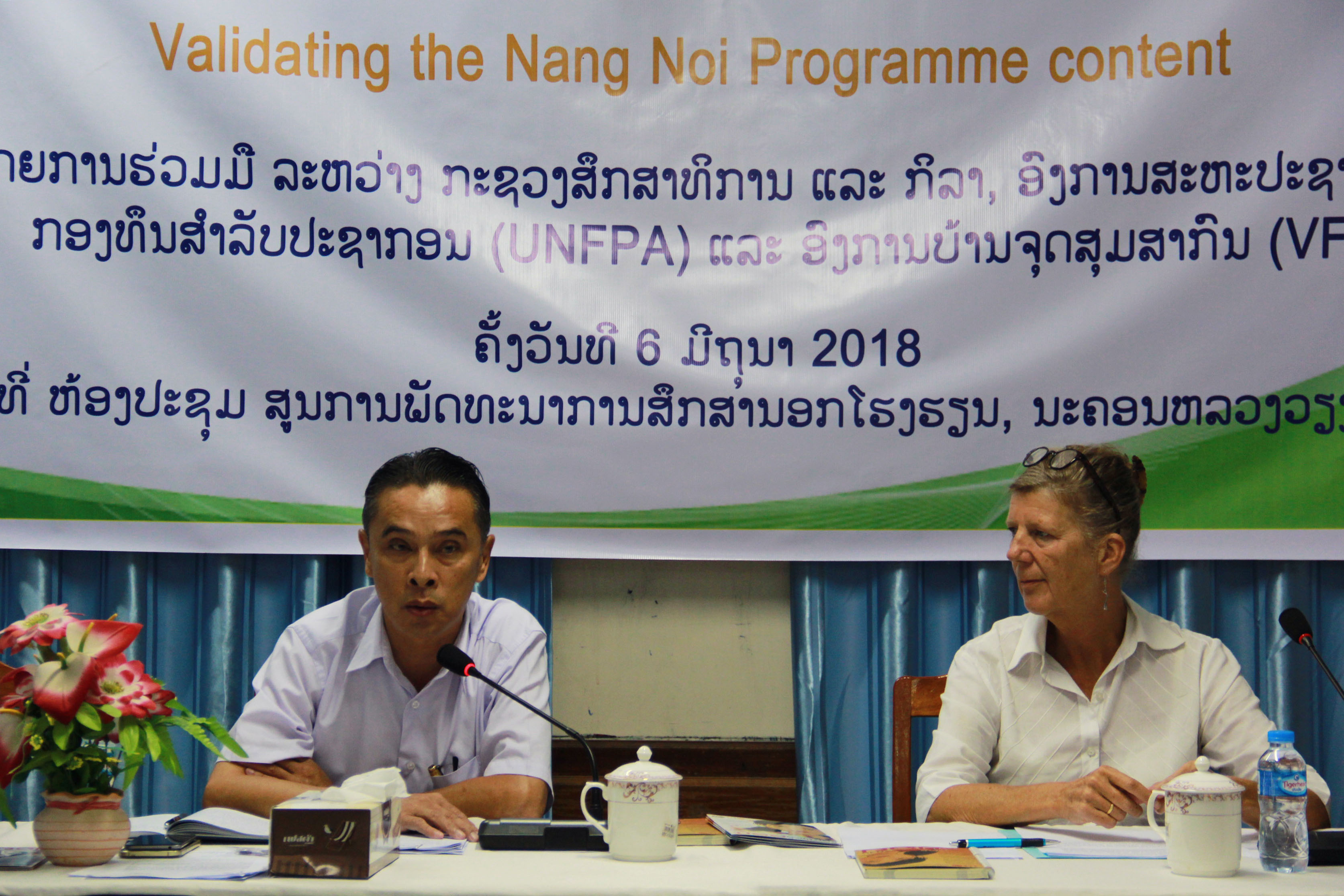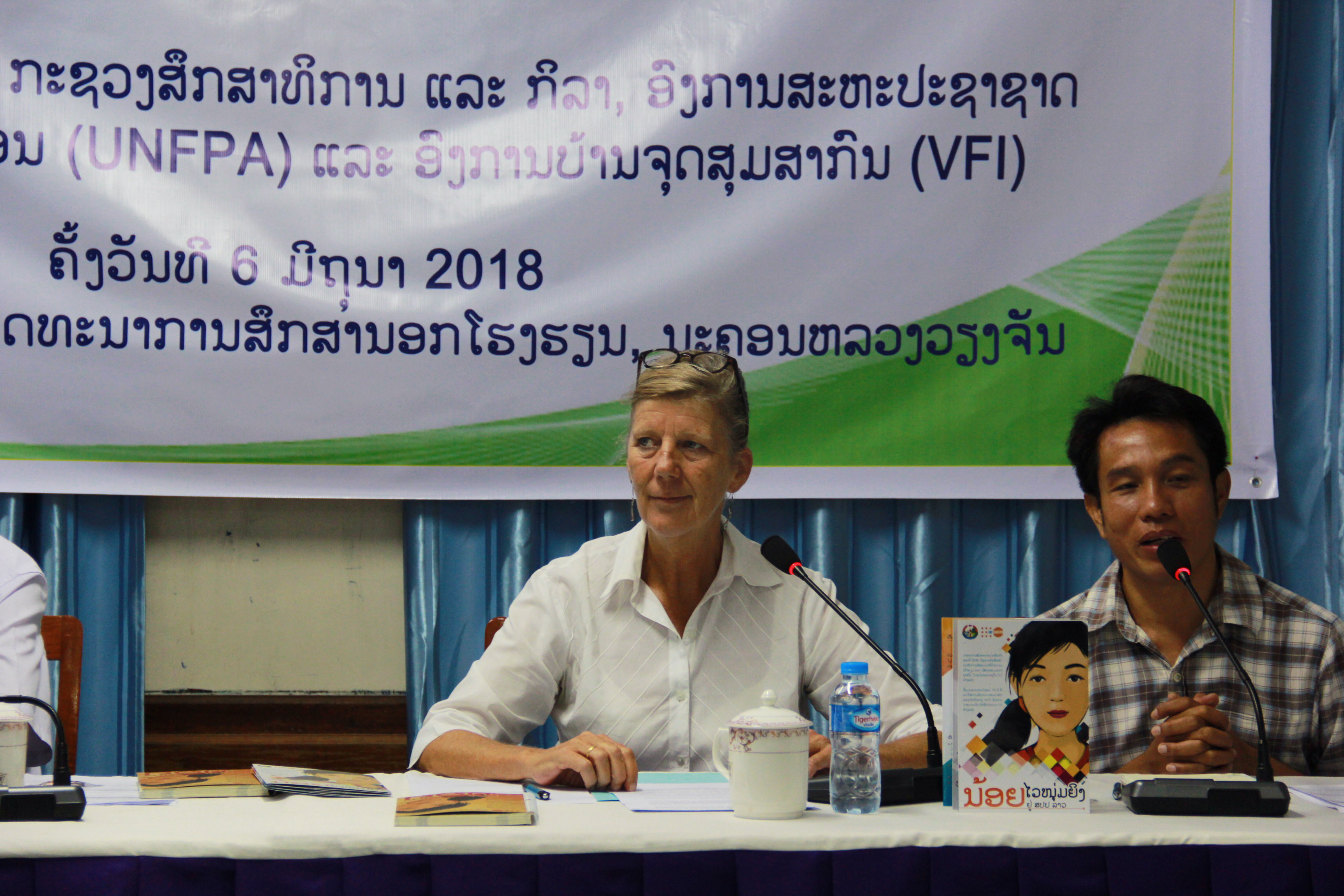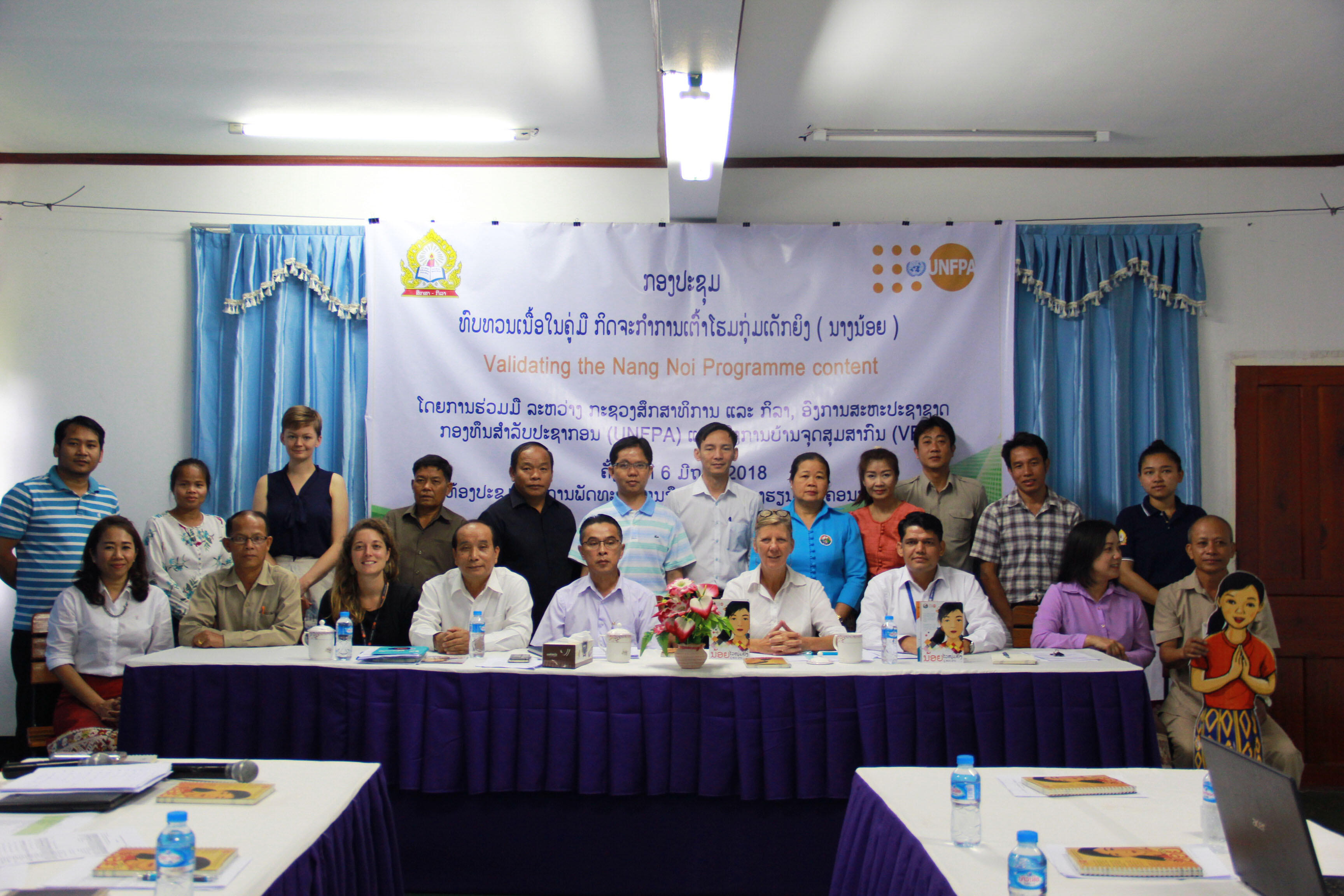Adolescent girls deserve to be healthy, happy, and safe. They deserve to have opportunities to develop their talents and capacities so that they can fulfill their goals. When adolescent girls are given proper tools and support, they can develop to their full potential and shape their own lives, support their families and their communities.
However, in Lao PDR, like in many other parts of the world, adolescent girls remain behind in development efforts. They often fall between interventions that focus on mothers and children, the special needs of adolescents are often overlooked and limited data is available on the age group 10-19.
There are 1.4 million adolescent boys and girls (aged 10-19 years), 21.9% of the population in Lao PDR. More than 1 in 20 adolescent girls have never attended school, 1 in 5 adolescent girls have dropped out of school, nearly 2 in 10 girls aged 15-19 are married and more than 1 in 10 girls aged 15-19 have begun childbearing. Nearly half of adolescent girls miss opportunities of fulfilling their potential because they are not in school. Most of them come from poor families and live in rural areas.
In 2016, Noi was introduced to put adolescent girls and their specific needs at the forefront of the development agenda in Laos. Most importantly, Noi serves as a reminder to not leave adolescent girls behind in the SDG Agenda, as it was the case for the MDGs. Under this broader Noi 2030 Vision, UNFPA implements the Nang Noi- Girls’ Group intervention with the aims to create a supportive environment for girls in which they can develop their talents.
The Non-Formal Education Department (NFE) of the Ministry of Education and Sports (MoES), with support from Village Focus International (VFI) and the United Nations Population Fund (UNFPA) organized a meeting to validate the 10 first sessions of the Nang Noi- Girls’ Groups programme content, taking place on June 6, 2018 at NFE’s office.
The Nang Noi- Girls’ Group Programme focusses on the most vulnerable girls and provides them with the necessary social, health, economic and cognitive assets in a playful manner.
The programme supports the girls to make healthy choices in their lives and informs them about the consequences of early marriage and pregnancy. In the programme Noi will be with her peers and together they will learn about important live skills that enable the girls to think about their future.
“Adolescence is a crucial period in a girl’s life time. Supporting her to go safely through this time; helping her to learn and develop and preventing child marriage, would dramatically improve learning outcomes for thousands of girls”, said by Visanh Somphong, Deputy Director of NFE at the opening.

Early May 2018, the NFE and UNFPA team undertook a field mission to observe the pilot project in Sepon District, Savannakhet Province to assess the progress of the Nang Noi- Girls’ Group Programme and provide recommendations for its further improvement.
The Nang Noi – Girl’s Group Programme started in December 2017, and is currently piloted in 10 villages. 20 girls (aged 15-19) have received the mentor training on the first 10 sessions of the Nang Noi- Girls’ Group content. 180 girls (aged 10-14) participate regularly in the girls groups activities.
“In the past years UNFPA along with many partners have been working hard to promote Noi so that the adolescent girls become the centre of our dialogues. It is because we truly believe that investing in Noi will accelerate poverty reduction, reduce socio-economic disparities and promote gender equality. Once we provide all adolescent girls with opportunities to learn, they will start blossoming and the achievement of the national and global development agenda will be within our reach” said Ms. Frederika Meijer, UNFPA Lao PDR Representative.

Today’s meeting provides an overview of the complete 40 sessions of Nang Noi – Girl’s Group; introducing the structure and methodology of the chapters to the participants and having high level education representatives validating the first 10 sessions and the corresponding comic illustrations.
For more information, please contact:
Kay amphone Singhalath
E-mail: Singhalath@unfpa.org
Tel: 021 267 680, Mob: 020 7777 6597


